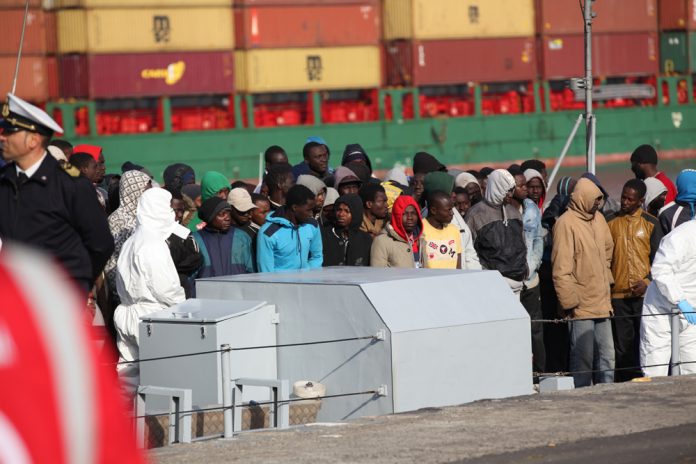Migrants in five European Union countries – Germany, Greece, Hungary, Italy and Sweden – struggle with particularly bad housing conditions and low life satisfaction, according to the findings of new research published by the European Network Against Racism (ENAR) on December 14.
ENAR surveyed 5,237 people who have migrated to these countries in the last five years. The findings provide a unique insight into their experiences of overall well-being, employment, crime and housing.
Respondents reported high levels of discrimination and verbal abuse, feelings of being treated worse than their colleagues at work, and being victims of crime on the basis of their ethnicity or migration status.
“‘Migrants’ is a word that has been used and abused to the point where we can’t even think that we are talking about real people with real experiences of discrimination, targeted hate and isolation,” said ENAR Chair Amel Yacef. “This survey is a sad wake up call to the reality of people whose journeys so far have been marked by hardship and hurt. The general sense I got was one of sadness, hopelessness and feeling powerless.”
Among the key survey findings is that migrants suffer from very low life satisfaction. This is particularly intense for all groups in Greece, and for Black Africans, undocumented people and asylum seekers in the other countries.
Also, one third of respondents do not feel close to people in the area where they live – with a high of 36.6% of those in Sweden and 33% of those in Germany reporting they do not feel close to people in the area where they live.
As regards employment opportunities and navigating the immigration administration, these are cited as the main difficulties for migrants in all five countries.
When breaking it down by ethnicity/country of origin, “getting a job” was the biggest problem for Pakistani and East Asians, and “immigration administration” was the biggest problem for Afghan respondents. Discrimination was often mentioned by Black and Somali respondents.
About housing, 77% of respondents said they experience difficulties finding a home to live in and housing conditions are particularly bad in Greece. Overcrowding is most common in reception and detention centres in Greece and Italy.
Migrants are also vulnerable to crime in Greece, with assault being the most significant. One third of respondents reported having experienced verbal abuse, with Black Africans reporting the highest levels (37%). And, more than a third of those who were the victims of crime said the crime was committed because of their ethnicity, while 53% overall said it was because of their migration status.

